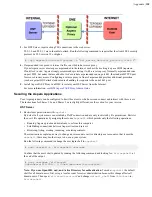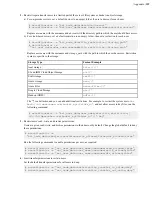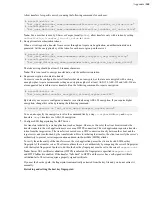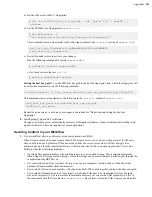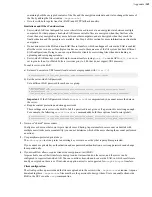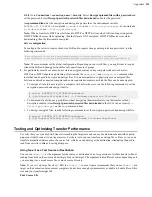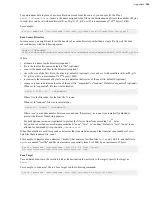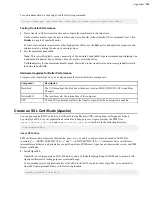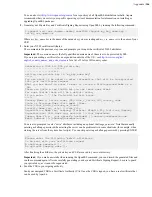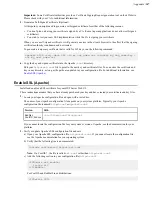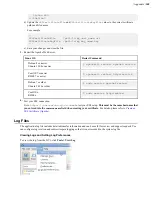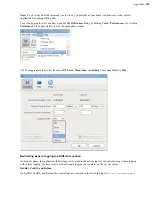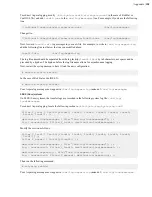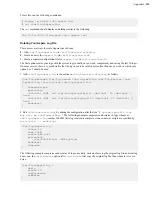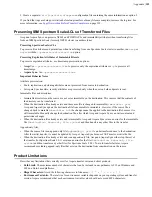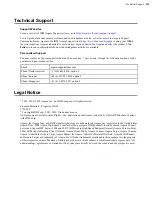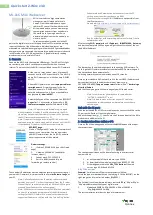
| Appendix |
352
3. Create a separate
/etc/logrotate.d/aspera
configuration file containing the same information as option 2.
If you find that logs are being overwritten before long transfers of many files are complete, increase the log size. For
Logs Overwritten Before Transfer Completes
on page 332.
Preserving IBM Spectrum Scale ACLs of Transferred Files
Ascp and Aspera Sync can preserve NFSv4 and POSIX ACLs and immutability attributes when transferring files
from an IBM Spectrum Scale (formerly GPFS) cluster to another cluster.
Preserving Spectrum Scale ACLs
To preserve file attributes and permissions when transferring from one Spectrum Scale cluster to another, run
ascp
or
async
with the
--preserve-xattrs=native
option.
Preserving Expiration Attributes of Immutable Filesets
To preserve expiration attributes, use timestamp preservation options:
•
Ascp:
Use
--preserve-access-time
to preserve only the expiration attributes or
-p
to preserve all
timestamps.
•
Aspera Sync:
Use
--preserve-access-time
.
Important Behavior Notes
Attribute preservation:
• Pools, replication, and cloning attributes are not preserved from source to destination.
• In Aspera Sync transfers, security attributes are preserved only when the user on both endpoints is root.
Immutable files and directories:
• Immutable directories on the source are not set as immutable on the destination. This ensures that the contents of
the directory can be transferred.
• When the destination file already exists and the source file is changed to immutable (
immutable: yes
),
Ascp and Aspera Sync update the destination file from mutable to immutable. However, if the source file is
changed back to mutable (
immutable: no
), the change cannot be applied to the destination file because it is
still immutable. Manually change the destination file, after which Ascp and Aspera Sync can write content and
permissions changes.
• When the destination file already exists and is immutable, Ascp and Aspera Sync return an error for the immutable
file (
Destination: Read-only file system
) and then transfers any other files in the transfer.
Append-only files:
• When the source file is an append-only file (
appendOnly: yes
), it can be transferred once to the destination.
After the initial transfer, it cannot be updated by Ascp or Aspera Sync because FASP must overwrite the file.
• When the destination file already exists and is an append-only file, Ascp and Aspera Sync either stop the rest of
the transfer (for Spectrum Scale 5.0.1) or return an error for the file (
Destination: Read-only file
system
) and then transfers any other files (for Spectrum Scale 5.0.0). To avoid transfer failures, Aspera
recommends excluding append-only files that exist on the destination from consideration on the source.
Product Limitations
Describes any limitations that currently exist for Aspera transfer server and client products.
•
Path Limit:
The maximum number of characters that can be included in
any
pathname is 512 on Windows and
4096 on Unix-based platforms.
•
Illegal Characters:
Avoid the following characters in filenames:
/ \ " : ' ? > < & * |
.
•
Environment Variables:
The total size for environment variables depends on your operating system and transfer
session. Aspera recommends that each environment variable value should not exceed 4096 characters.

